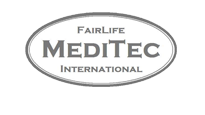
Hippocrates first described the antimicrobial properties of Silver in 400 bc but how it works has been a mystery until now, as a team led by James Collins, a biomedical engineer at Boston University in Massachusetts, has described how silver disrupted bacteria and shown that the ancient treatment could help to deal with the thoroughly modern scourge of antibiotic resistance. The work is published in Science Translational Medicine.
Collins and his team found that silver — in the form of dissolved ions in water — attacks bacterial cells in two main ways: it makes the cell membrane more permeable, and it interferes with the cell’s metabolism, leading to the overproduction of reactive, and often toxic, oxygen compounds.
Both mechanisms can be harnessed to make today’s antibiotics more effective against resistant bacteria.
Many antibiotics are thought to kill their targets by producing reactive oxygen compounds, and Collins and his team showed that when boosted with a small amount of water dissolved ionic silver these drugs could kill up to 1,000 times as many bacteria.
The increased membrane permeability also allows more antibiotics to enter the bacterial cells, which may overwhelm the resistance mechanisms that rely on shuttling the drug back out.
That disruption to the cell membrane also increased the effectiveness of vancomycin, a large-molecule antibiotic, on Gram-negative bacteria — which have a protective outer coating. Gram-negative bacterial cells can often be impenetrable to antibiotics made of larger molecules.
Collins says that he and his colleagues saw good results in mice using nontoxic amounts of silver. We’re also encouraging people to look at what features of silver caused the helpful effects so that they can look for non-toxic versions,” he says.
MediTec NutriCare Division of MediTec Group provide the product SilverLife
SilverLife is a product that combines the highest safety and bioavailability as it is in water solution in combination with being distributed in ionic form as H2O ligand molecules that are harmless to the human body cells and neutralise harmful anaerobic protozoa such bacteria, different virus, mycobacteria, Plasmodium and fungi.
For more information visit SilverLife homepage: http://silverlife.international/

